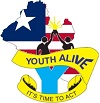In most communities in Liberia, women and girls still remain vulnerable to HIV/AIDS for various reasons, from HIV/AIDS drugs adherence, little support or care for the people living with HIV/AIDS (PLHIV) and lack of awareness on prevention. Most of the rural communities in Liberia have also been characterized by harmful traditional practices such as female genital mutilation and wife inheritance, which have also contributed to their vulnerability, since these practices have highly contributed to the spread of HIV/AIDS.

Between November to December of 2018, Youth Alive Liberia (YAL) worked with WANEP to implement a project titled, “Engaging women and girls living with HIV and AIDS, youths and community structures in the Prevention and Response to HIV, SGBV and Harmful Traditional Practices – EWPR.” The project was implemented in Montserrado, Bong, Grand Bassa, Nimba and Margibi Counties.
Mrs. Comfort Tiah, one of the people living with HIV/AIDS in Margibi County testifies of how the program brought a change in her life and that of her children after attending the Drugs adherence training. Mrs. Tiah, a mother of two has been living with HIV for over two year and it has not been easy for her since she tested HIV positive. She did not understand the importance of drugs adherence, she would skip medication sometimes and this would affect her health.
Even after I had finished the drugs that I had, I didn’t have the courage to go to the health center because I feared that people would see me and talk about me, I didn’t like it.” She said.
This she said affected even her children (who are HIV negative) psychologically. She says that her children were always sad seeing their mother’s health deteriorate and even did not concentrate in school. Mrs. Tiah, a single mother, cannot remember how she got the infection but feels that it’s not important for now, but staying safe and taking care of her children is her priority. She is now relieved that her health has improved and she can confidently and openly speak of her status and also encourage other women on the importance of drug adherence.
“I never want to miss my medication, because I want to stay healthy and strong to be able to take care of my children until they are all grown.”
The project was to reach out to school health clubs for mentorship and coaching sessions on life skills. Conduct HIV drugs adherence trainings and provide technical support to partner organizations to conduct activities on HIV prevention, care and support for PLHIV. Mrs. Tiah was one of the participants who attended the HIV drugs adherence trainings. She says that after the training, her self-esteem and level of confidence has grown. She has become very active in the support group.
“I have never attended a Drugs adherence training and this one came at the right time and I want to thank you for bringing the training to us, it was very beneficial and I can confidently say that in the past five or six months, my life has completely changed. My children are even happy because their more has become more active than before.”
She says. Mrs. Tiah also is now productive not only in the family but also in the community, as on several occasions she shares her story during community meetings.
Skipping medication gives the HIV virus the chance to multiply, hence weakens the immune system and makes one to become sick, therefore the Drugs adherence training was relevant not only to Mrs. Tiah but also other young women girls in the communities.
As an organization, it is envisioned that future programs on HIV/AIDS and drug adherence in the communities in Liberia, we will use women like Mrs. Tiah as change agents
